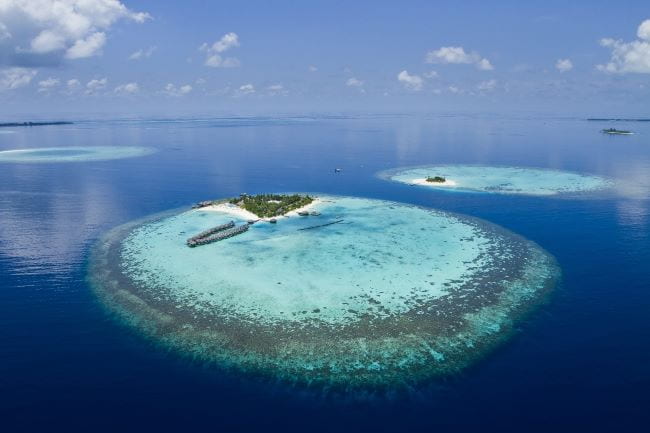The sea-level of the Indian Ocean is rising at a rate and magnitude nearly twice the global average, but insufficient data records have stood in the way of understanding this strong response to climate. In a study recently published in Nature Geoscience, ASE/EOS researchers Dr Kyle Morgan, Research Assistant Ke Lin, Assoc Prof Xianfeng Wang and Keven Roy together with colleagues from Canada, Australia and New Zealand tracked relative sea level change on coral atoll islands in the Maldives over the past two millennia. The findings are both surprising and alarming: the tropical Indian Ocean has a history of much larger sea level variation in response to climate compared to the Atlantic and Pacific Oceans. For the latter two, solid records of sea level show no more than 25 cm deviation from current relative sea levels in the past 2000 years. However, as this study reveals, it’s quite a different story in the tropical Indian Ocean, where the relative sea level dropped and rose almost 90 cm at times during the same time interval. The study, titled Climate-forced sea-level lowstands in the Indian Ocean during the last two millennia, found two historical phases of very low sea level that are associated with the cold time periods known as the Late Antiquity Little Ice Age and the Little Ice Age.

An example of one of the larger fossil micoatolls underwater, this one has a live coral (the purple mound) that has settled and begun to grow upwards, but not yet reached the water surface
To track historical sea levels and create a continuous proxy over the past 2000 years, the researchers measured fossil coral microatoll growth in the Maldives. Microatolls are corals that have been constrained by water levels, providing a reliable long-term marker of sea-level. Corals with hard calcified skeletons live up to about 200 years, but if the conditions are right, they can be preserved as fossils for thousands of years after death. The fossilised microatoll coral samples used in this study were unique because they were very well preserved under water and were more favourable for precise age control. U-Th (Uranium-Thorium) dating was used to date the coral fossils. The method is well-established at the ASE/EOS isotope geochemistry lab to determine the age of calcium carbonates, for example in corals.
Studying past changes in sea level is our best tool for understanding current and predicting future changes in sea level. The researchers will continue to work on corals from Maldives to answer questions such as: ‘Are current rates of sea level rise in the tropical Indian Ocean unprecedented?’ and ‘Can the decline of the Indian summer monsoon in past half-century be linked to human-caused climate change?’.
More about the project here

